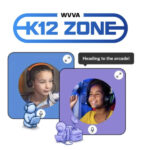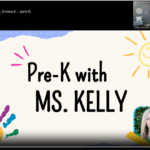
In today’s rapidly evolving educational landscape, online schooling has become a viable option for many families. As the digital age continues to shape how children learn, parents are increasingly faced with the decision of whether to choose an online private school or an online public school for their child. But how do these two options differ, and does it really matter when it comes to your child’s education? In this article, we’ll explore the key differences between online private and public schools and help you make an informed decision.
What is Online Schooling?
Online schooling refers to a form of education where students complete their coursework remotely using digital platforms. Both private and public schools have embraced online learning, offering full-time programs that follow either state-funded or tuition-based models. While both offer flexibility and convenience, the core differences lie in the structure, curriculum and overall educational approach.
Online Private Schools vs Public Schools: Key Differences
1. Funding and Affordability
The most significant difference between online private and public schools is how they are funded.
- Online Private Schools: These schools are tuition-based, meaning parents are responsible for paying for their child’s education. The cost of tuition varies widely, with some prestigious institutions charging tens of thousands of dollars per year. However, private schools often offer scholarships or financial aid to help offset costs.
- Online Public Schools: These schools are funded by the government and are free for residents of the district or state. The educational services are taxpayer-funded, which means families do not have to pay tuition, making it an appealing option for many.
Consideration: While online public schools may seem more cost-effective, some families may prefer the specialized programs and curriculum offered by private schools, which could justify the higher cost.
2. Curriculum and Specialization
- Online Private Schools: Typically, private schools have the freedom to design their curriculum, which can lead to specialized programs tailored to individual needs or educational philosophies. Some private online schools offer unique courses in arts, technology or advanced placement programs typically not available in public schools.
- Online Public Schools: Online public schools generally follow state-mandated curricula, which ensure that the content meets national standards. These schools are regulated by the state, and the programs are designed to cater to a broad range of students. While they may offer a wide variety of courses, they might not have the same flexibility or specialized offerings as private institutions.
Consideration: If you’re looking for a curriculum that aligns with specific values or a unique approach to learning, an online private school might be the right fit. However, if you prefer a more standardized, state-approved curriculum, an online public school could be ideal.
3. Teacher-Student Ratio and Personalized Attention
- Online Private Schools: Private online schools often have smaller class sizes and more personalized attention from teachers. With a lower student-to-teacher ratio, students may receive more tailored feedback and support.
- Online Public Schools: Public schools, due to their larger enrollment numbers, tend to have larger class sizes. This sometimes can mean less one-on-one time with teachers, as they need to manage more students. However, many online public schools make use of technology and support staff to bridge this gap.
Consideration: If individualized attention and personalized learning experience are priorities for your child, a private school might offer the advantage. On the other hand, public schools still provide quality education, though the personal connection might be more limited.
4. Extracurricular Opportunities
- Online Private Schools: Extracurricular activities in online private schools often are minimal due to the virtual nature of this style of education. However, some private schools may partner with local institutions to offer extracurriculars such as sports, arts or social activities.
- Online Public Schools: Many online public schools have access to extracurricular programs offered by the local district, including sports teams, clubs and events. These options can help your child stay engaged socially and develop new interests.
Consideration: If extracurricular involvement is crucial for your child, a public school might provide more diverse options, though private schools sometimes can offer more exclusive or specialized activities.
5. Socialization and Community
- Online Private Schools: One potential drawback of online private schools is the lack of daily physical interaction with peers. While virtual events and occasional in-person meetups may be organized, the online environment sometimes can feel isolated.
- Online Public Schools: Many online public schools offer opportunities for students to meet and interact with peers in local community events or district-sponsored activities. This can provide a more traditional school social experience despite the online format.
Consideration: If socialization is a concern, public schools may provide more opportunities for students to build relationships and engage in face-to-face interactions. Online private schools often compensate with virtual events, but it may not be the same as in-person connections.
Does It Matter to Your Child’s Education?
Ultimately, the decision between online private and public schooling depends on your child’s needs, your family’s priorities and your financial situation. For some, the flexibility and personalized approach of private schools are worth the investment. For others, the cost-free, standardized options of public schools make more sense.
What’s most important is finding the environment that aligns with your child’s learning style. Consider factors such as the curriculum, teacher-student ratio, extracurricular opportunities and community engagement. Both online private and public schools can offer a high-quality education, but the best choice is the one that supports your child’s unique academic and social development.
Explore Online School Options Further
If you’re considering online school for your child, take the time to explore both private and public options thoroughly. Research the programs available, reach out to schools for more information and make sure you understand the specific benefits and drawbacks of each type. The right choice can make a significant difference in your child’s educational journey.















